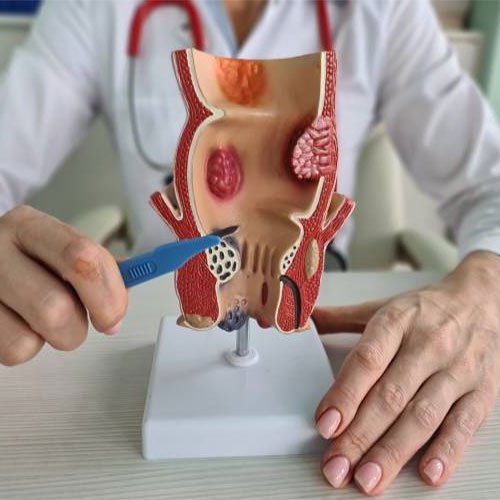MIPH (Minimul Invasive Surgury for Hemoroids)
Minimally Invasive Procedure for Hemorrhoids (MIPH), often referred to as stapled hemorrhoidopexy, is an advanced surgical technique for treating hemorrhoids with reduced pain and faster recovery times compared to traditional surgery. This method is particularly beneficial for patients with grade III and grade IV hemorrhoids, where more conservative treatments may be ineffective.
In MIPH, a specialized device called a circular stapler is used to reposition and staple the prolapsed hemorrhoidal tissue back to its normal position inside the rectum. This stapling process cuts off the blood supply to the hemorrhoidal tissue, causing it to shrink and eventually get absorbed by the body. Because the procedure is performed in an area with fewer nerve endings, patients experience significantly less postoperative pain.

Key Benefits of MIPH
- Minimized Pain: Unlike traditional hemorrhoidectomy, where external incisions are made, MIPH is performed internally, leading to reduced nerve irritation and postoperative pain.
- Faster Recovery: Patients can usually resume normal activities within a few days, and recovery time is shorter.
- Minimal Bleeding: The procedure reduces blood loss during and after surgery.
- Lower Risk of Complications: With fewer incisions, there’s less risk of infections and other complications common in open surgeries.
Procedure Details
- Preparation: Patients may need to follow specific dietary restrictions and use a bowel cleanser the day before surgery.
- Anesthesia: MIPH is typically performed under general or spinal anesthesia.
- Surgery: Using the stapler, the surgeon lifts and staples the prolapsed hemorrhoidal tissue, effectively repositioning and reducing blood flow to it.
- Recovery: Patients are monitored post-surgery and may go home the same day or within 24 hours.
Aftercare and Recovery
- Pain Management: Mild pain can be managed with prescribed painkillers.
- Diet: A fiber-rich diet and increased water intake are recommended to ease bowel movements.
- Follow-Up: Regular check-ups help monitor healing and ensure there are no complications.





